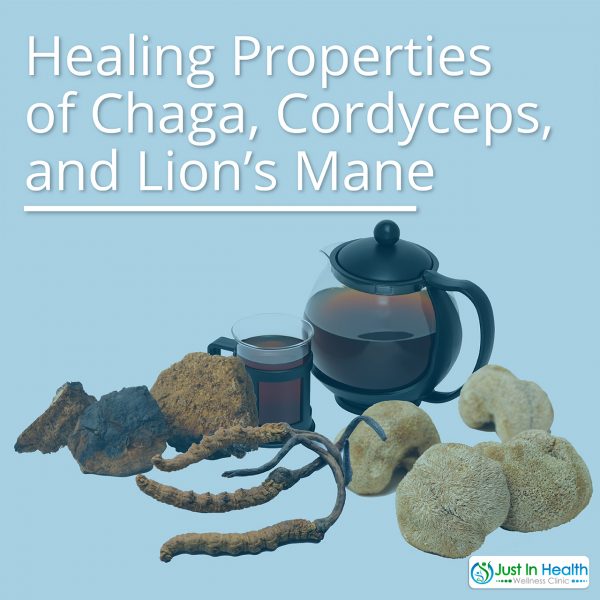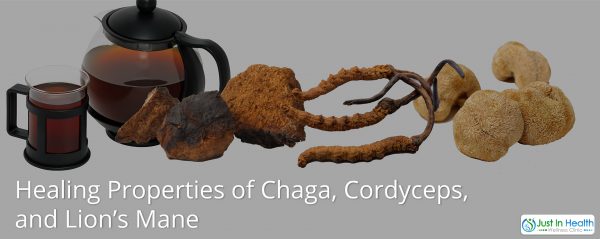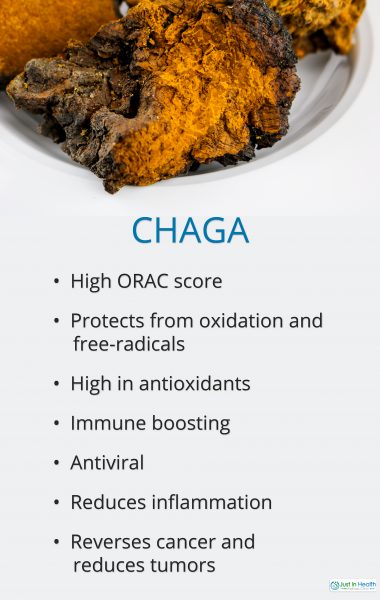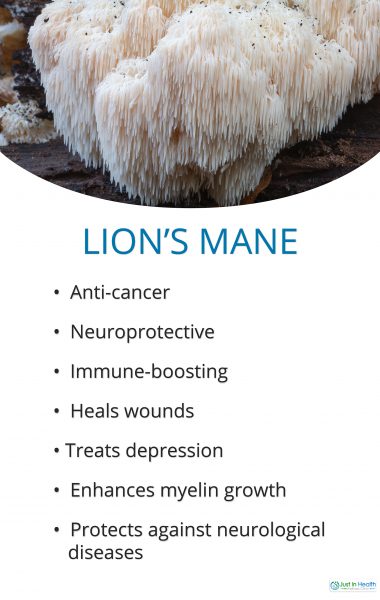

By Dr. Justin Marchegiani
When you think of mushrooms, you might think of something you eat. Perhaps you think back to childhood, being told not to touch mushrooms growing outside, as they might be poisonous. You might even think of mushrooms as a drug. Mushrooms can be any and all of these things, but the most fulfilling role of a mushroom might just be the function that it serves as medicine!
Medicinal mushrooms have been used for centuries for their health-promoting properties. A 4,000-year-old mummy of a Neolithic man was found with Piptoporus betulinus in his medicine kit, a mushroom used for its antibiotic and antiparasitic properties! Both the Egyptians and the Aztecs declared mushrooms the sons of the gods and the flesh of the gods, a plant of immortality. Due to the global presence of mushrooms and their long history of usage, scientists in recent days have begun to study mushrooms in more detail, which has proven our ancestors correct!

Mushrooms are a part of a very complex kingdom; they can be poisonous or delicious, intoxicating or healing. Below are some of the most powerful medicinal mushrooms known to man, capable of treating and curing a wide range of ailments, inside and out!

Chaga
Chaga, Inonotus obliquus, grows on hardwood trees in cold northern forests and is most impressive for its high ORAC score and its positive effects on the immune system. The Chaga mushroom has one of the highest ORAC scores of any food, a score which relates to how well a food can protect you from oxidation and free radicals. This is also related to the insane amount of antioxidants contained within Chaga mushrooms!
Chaga’s amazing immunomodulating properties are related to the beta-glucans it possesses, which have the ability to increase your body’s production of lymphocytes. These are the white blood cells that regulate your immune response to germs and foreign substances, like the bacteria and viruses responsible for making you sick. Chaga is very effective at keeping you healthy and warding off colds!
Chaga is antiviral, which in studies has shown to have an impact on human immunodeficiency virus (HIV) and the hepatitis C virus! Chaga also reduces inflammation and can help prevent and reverse cancer by reducing tumors.
Click here to work with a functional medicine doctor for a personalized health plan!

Cordyceps are an interesting and rare type of fungus that only grow in specific environments at high altitudes. Ophiocordyceps sinensis, also known as cordyceps or the ‘zombie mushroom,’ infects caterpillars with its spores and begins to grow inside them, eventually killing them by growing out of their heads! While this sounds unappealing, mycologists have recently created ways of growing cordyceps without the involvement of insects.
Cordyceps are also known as an anti-aging mushroom because of their ability to increase ATP (our body’s fuel), aiding in stamina and recovery. This mushroom protects us from markers of aging, such as mitochondrial damage and oxidative stress. Another anti-aging feature of cordyceps is its ability to stimulates apoptosis. This is the process of getting rid of old and defective cells, such as cancerous cells. In this way, cordyceps can help shrink tumors and slow the development of cancer.
In addition, cordyceps helps boost libido and metabolism, improves respiratory function and treats asthma, and promotes a healthy immune system!

Lion’s mane, Hericium erinaceus, the hedgehog mushroom. Lion’s mane is rich in β-glucan polysaccharides, which give this mushroom it’s anti-cancer, neuroprotective, and immune-boosting effects!
The list of benefits provided by lion’s mane goes on and on. From healing wounds to treating depression, this white hedgehog mushroom’s potential is seemingly limitless. One of the prominent areas studied on lion’s mane is its impact on the brain. Lion’s mane has the ability to enhance axons and dendrites (the system of transferring information to and from the brain) by promoting the growth of the myelin sheaths that protect them. Several neurological diseases are due in part to degraded myelin, such as Alzheimer’s. Lion’s mane seems to be a promising natural solution for the prevention of such diseases.
Lion’s mane has many other benefits, including improving cognition, reducing depression and anxiety, reducing inflammation, and boosting the immune system.
Medicinal mushrooms are more than a superfood—they’re medicine! They’ve been used for thousands of years, and thanks to science, their effectiveness has now been proven. Medicinal mushrooms can be bought whole, dried, as a tincture, as a tea, or in capsules.
Click here to schedule an introductory functional medicine consult to start feeling better today
References:
http://www.spiritofchange.org/Spring-2016/A-History-of-Medicinal-Mushrooms/
https://www.ncbi.nlm.nih.gov/pubmed/20804368
https://www.ncbi.nlm.nih.gov/pmc/articles/PMC3924981/
https://www.ncbi.nlm.nih.gov/pmc/articles/PMC3909570/
https://www.ncbi.nlm.nih.gov/books/NBK92758/
https://www.ncbi.nlm.nih.gov/pmc/articles/PMC5165155/
https://www.ncbi.nlm.nih.gov/pubmed/23735479